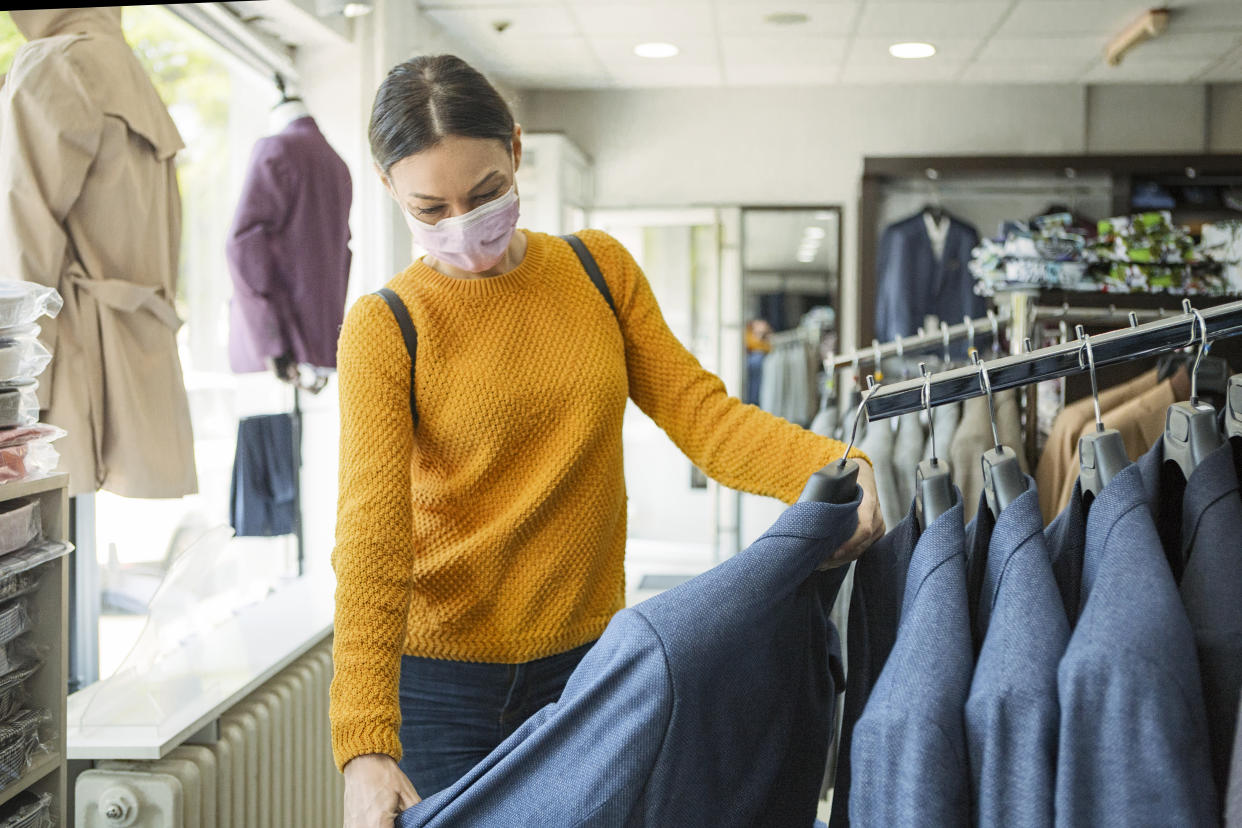Is it safer to go to a restaurant or a hair salon during the coronavirus pandemic? Experts may have the answer

The country is reopening as more than 2 million people are infected with the coronavirus and you might be wondering: is it safe to visit the grocery store or the bank? The gym or a restaurant? A new paper reveals clues by comparing the economic, social and health benefits of 26 popular destinations.
“If we’re going to open up a percentage of [the country] what’s the best order?” co-author Seth Benzell, a postdoctoral associate at the Massachusetts Institute of Technology (MIT) Initiative on the Digital Economy, tells Yahoo Life. “We’re not asking ‘Is it dangerous to go to the movies once? But rather, ‘What’s the cumulative danger from all visits to the movie theater?’”
The Proceedings of the National Academy of Science study ran from February and March, comparing the last month of “approximate” normalcy in people’s lives and the month that national lockdowns began.
To define what’s “dangerous” about grabbing a restaurant meal or seeing a movie, researchers considered the importance of a business (the social-and-economic value to consumers) and the risk of COVID-19 transmission (how many people visit, how far they traveled, the length of their stay, their age, the density of crowds and more).
According to the authors, the businesses that should reopen first offer the most value and the least risk. “The core idea is that locations offering better trade-offs should face looser restrictions,” wrote the study authors.
Banks, grocery stores, colleges and universities, department stores and dental practices should get the first green light. “They have the most bang for your buck,” says Benzell.
These larger venues usually allow for better social distancing, employ more people and attract “regulars” who generally don’t travel far (theoretically reducing new paths of contamination and making it easier to trace potential outbreaks). More simply: a bank building might have the same square footage as a restaurant but is typically less crowded at any given moment. And school campuses have wide-open spaces for a specific group of people (although crowded dorms and campus parties are a danger).
Hair salons, places of worship, furniture, hardware and pet supply stores, casinos and movie theaters rank somewhere in the middle. The overall danger of a theater is less than a restaurant, points out Benzell, because per day, more people eat out than see a movie.
And gyms, bookstores, cafes and restaurants, sporting good stores, amusement parks and liquor and tobacco stores should reopen last because they score the highest risk and lowest value to consumers, according to the study. For example, although most states declared liquor stores essential, they typically employ only a few people and are narrower spaces which could potentially increase COVID-19 transmission. Sporting goods stores typically have wider aisles that reduce physical contact, but they rarely sell essentials. And though gym memberships retain the same group of people, the dense, sweaty conditions and shared equipment are big risk factors.
“Nothing is risk-free but we need to move smartly and this is the algorithm we need to figure out — the economical and health benefits [of reopening the country],” Yahoo News Medical Contributor Dr. Dara Kass, tells Yahoo Life of the study. “There are environments that are higher risk but necessary, such as emergency rooms, schools and public transportation. But we mitigate those risks and invest in them.”
Fortunately, there are ways to lessen the dangers of normal life – take advantage of a restaurant’s curbside pickup and contactless deliveries, use online banking, or, at your own discretion, give yourself a “quarantine haircut.”
For the latest coronavirus news and updates, follow along at https://news.yahoo.com/coronavirus. According to experts, people over 60 and those who are immunocompromised continue to be the most at risk. If you have questions, please reference the CDC’s and WHO’s resource guides.
How to maintain your physical and mental health during the pandemic
Taking care of a loved one with COVID-19? Here’s how to stay healthy
Q&A with Dr. Kavita Patel: How to keep your family safe and maintain your mental health
Read more from Yahoo Life:
This is why kids under 2 don't need face masks, according to the CDC
Should you form a COVID-19 'double bubble' with another household? Here's what experts say
How to make up for the loss of human touch during the coronavirus pandemic
Want daily wellness, lifestyle and parenting news delivered to your inbox? Sign up here for Yahoo Life’s newsletter.

